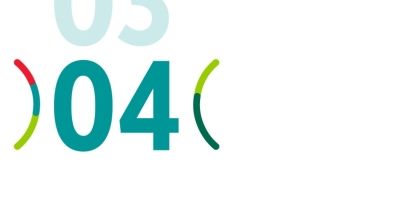-
View article
 #Financial publications
#Financial publicationsInterview with Clotilde L’Angevin - Significant full-year earnings and a transitional fourth quarter marked by the launch of the new MTP
2026/02/04 -
View article
 #Financial publications
#Financial publicationsInterview with Olivier Gavalda - Results that reflect teams’ commitment to serving our customers and society
2026/02/04 -
View article
 #Economy
#EconomySouth Korea: a year after the political crisis, markets are buying the promise of stability
2025/12/17
Corporate Culture and Ethics
Respecting fundamental rights and ethics
Fundamental rights
Group Crédit Agricole operates worldwide in compliance with human rights and basic social rights. To make this commitment known publicly, the Group is a signatory to the UN Global Compact (2003) and the UK Modern Slavery Act (since 2021). Credit Agricole S.A. respects the International Labour Organization Declaration on fundamental principles and rights at work adopted on 18 June 1998 and amended in 2022, and applies the United Nations’ Guiding Principles on Business and Human Rights.
Additionally, in line with its joining the Global Deal (an international initiative advocating social dialogue) in 2017 and as part of the social pact set forth in the Group’s Human-centric project, an International Framework Agreement was signed on 31 July 2019 with UNI Global Union, a global union federation for the skills and services sectors. This agreement, renewed in October 2023 and renamed Global Agreement, reasserts the Group’s commitment towards respecting fundamental freedoms and rights.
Ethics
Group Crédit Agricole has established ethical principles common to all entities making up the Group, i.e. regional banks (caisses regionales), Fédération Nationale du Crédit Agricole, and Crédit Agricole S.A.
In addition to meeting legal and regulatory requirements, the Group’s culture of compliance and ethics is based on:
- the Code of Ethics: updated in 2025 and common to all Group entities, the Code of Ethics asserts the Group’s commitments, identity and values of local presence, responsibility and solidarity. It constitutes the ethical and professional foundation that should be upheld by all Group employees on a daily basis and highlights the principles to be respected vis-à-vis customers, society as a whole and other employees,
- the Codes of Conduct: they translate the principles of the Code of Ethics in a form that is suited to the specific nature of each entity’s activities, thereby guiding the actions and behaviour of each individual on a daily basis. These Codes of Conduct apply to all, be they employees or Executive Directors, regardless of their situation and role within the organisation. They also include a specific anti-corruption section in application of the requirements under the Sapin II Law (France).
- the Fides Corpus: a collection of standards and procedures, the Fides Corpus identifies the rules that the Group entities, executives and employees must follow, and translates in concrete terms any compliance-related regulatory changes
In line with the corporate texts of reference, a policy for the prevention and management of conflicts of interest, in application of the MIF regulation is in place, and a fraud prevention coordination unit was established in September 2008 within Crédit Agricole S.A.’s Compliance Department.
In 2024:
100%
of employeesare eligible to training in ethics
100%
of the Group’s entitieshave rolled out a professional whistleblowing mechanism
100%
of employeesare eligible to training on financial security (including anti-money laundering/countering the financing of terrorism (AML/CFT)), corruption and fraud
Personal data protection (GDPR)
In 2018, Group Crédit Agricole Group drew up two personal data protection charters:
- the first, relating to recruitment, intended for applicants and available here;
- the other, for the attention of employees, presented to the employee representative bodies and accessible here.
They explain:
- The processing by each entity of personal data of applicants and employees,
- The rights of applicants and employees,
- How and through whom these rights can be enforced.
They apply to all Crédit Agricole Group entities, including the Regional Banks.
These two charters are updated on a regular basis, in particular to take into account new types of data processing carried out in the entities and any new or changes to regulations.
Whistleblowing
Employees who witness a malfunction, offence or crime within their entity must inform their hierarchy. However, if reporting through this channel is ineffective or unsuitable for the situation (fear of reprisals, pressure from the hierarchy, hierarchy involved, etc.), employees can exercise their right to alert via the Group whistleblowing tool. The employee can choose to raise the alert anonymously or not. The system was presented to Crédit Agricole S.A.’s representative trade unions, and is open to all Group employees, outside contractors and temporary staff, suppliers and other persons covered by the applicable laws. It covers the entire scope of Group Crédit Agricole, i.e. over 300 entities.
The tool guarantees the confidentiality of the author of the report, the facts contained in the file and the persons concerned. It can be accessed 24/7 through this link, via a personal or professional computer.
Appointed employees of the Group, who are subject to a confidentiality agreement, handle the alert with the greatest attention.
In addition, all Group entities with at least 250 employees, as well as the works council (CSE) of each Group entity, have designated a point of contact responsible for guiding, informing and supporting employees in matters of sexual harassment and sexist behaviour.



